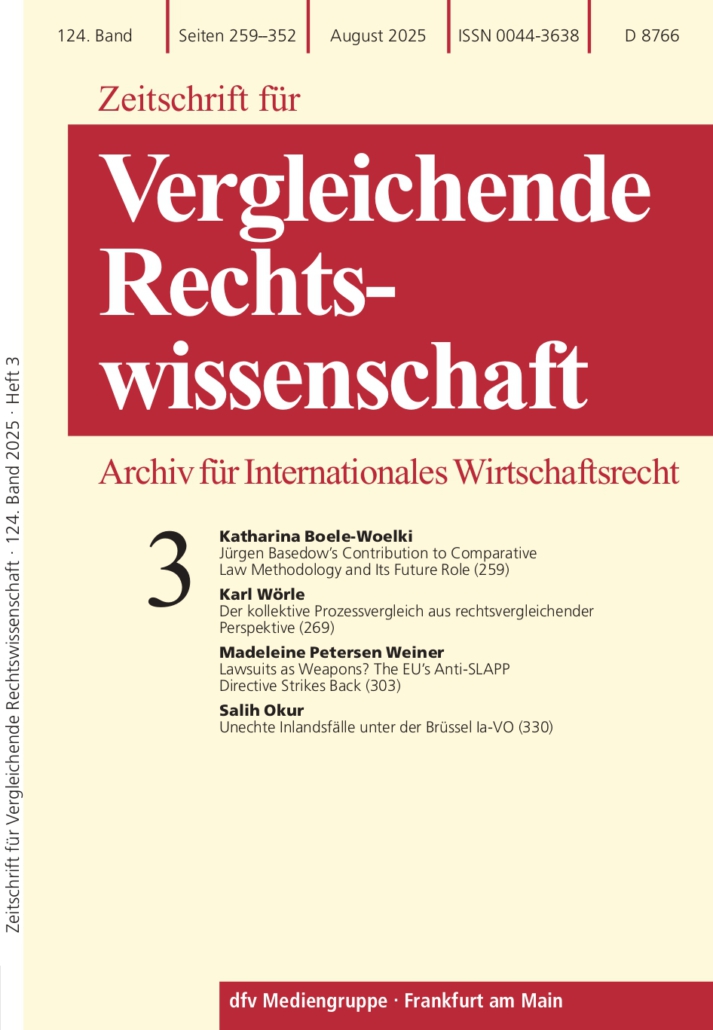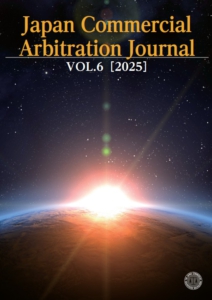Views
The FSIA’s Direct Effects Problem
Post authored by Lance Huckabee, JD candidate and Global Legal Scholar at the University of Pittsburgh School of Law
When a foreign sovereign breaches a commercial contract with a private entity, what recourse does the wronged party have? In the United States, the Foreign Sovereign Immunities Act (FSIA) governs such disputes, providing an exception for commercial activity that causes a “direct effect” in the U.S. Yet, the definition of “direct effect” has remained elusive, leading to decades of judicial inconsistency and a deepening circuit split.
At the heart of this legal uncertainty is the Supreme Court’s decision in Republic of Argentina v. Weltover (1992), which sought to clarify the issue but instead left room for widely divergent interpretations. Some circuits have adopted a flexible, causation-based approach, analyzing whether a foreign state’s breach had an immediate consequence in the U.S. Others, like the recent D.C. Circuit decision in Wye Oak Tech., Inc. v. Republic of Iraq, have imposed rigid bright-line rules—specifically requiring that the contract contemplate the U.S. as a place of performance. This formalistic approach creates a dangerous loophole, allowing foreign states to structure agreements in a way that insulates them from jurisdiction. As a result, a U.S. business may suffer substantial financial harm from a foreign sovereign’s breach but find itself without legal recourse simply because the contract was silent on where payments were to be made.
This restrictive interpretation undermines the FSIA’s core purpose: to hold foreign sovereigns accountable when their commercial activities impact U.S. businesses. By prioritizing contractual language over economic reality, decisions like Wye Oak erode the ability of American companies to seek redress, making sovereign breaches effectively consequence-free. A proper interpretation of the FSIA should align with Weltover’s focus on causation, ensuring that foreign states cannot exploit technicalities to evade liability. If left uncorrected, the current trend risks turning the FSIA into little more than a paper shield—one that protects sovereigns rather than those they harm.
The Wye Oak decision exacerbates both intra- and inter-circuit inconsistencies, further complicating the FSIA’s application and weakening the commercial activity exception in breach-of-contract cases. By imposing a rigid bright-line rule, it unduly narrows the scope of what qualifies as a “direct effect,” creating uncertainty for U.S. businesses engaged in international commerce. With Wye Oak’s attorneys petitioning for certiorari in January 2025, the case presents a critical opportunity for the Supreme Court to resolve the longstanding circuit split on the FSIA’s direct effects clause.
The Explosion of Private International Law in Asian Scholarship
The 21st century has witnessed a remarkable surge in academic scholarship on private international law in Asia. This is not to say that significant studies on the subject were absent before this period. However, in recent decades, Asian scholars have brought renewed vigour and depth to the field, establishing private international law as a critical area of legal inquiry on the continent.
A testament to this intellectual flourishing is Hart Publishing’s extensive series on private international law in Asia, featuring no fewer than 16 volumes with Professors Anselmo Reyes and Paul Beaumont as Series Editors. These works serve as a rich repository of comparative legal thought, offering valuable insights that extend far beyond Asia’s borders. Scholars and practitioners seeking inspiration from diverse jurisdictions will find these books to be an essential resource. Moreover, other publishers have also contributed to this growing body of literature, further amplifying Asia’s voice in the global discourse on private international law.
Having read and reviewed many of these works on the blog, I am continually struck by the depth of scholarship they offer. Each new book reveals fresh perspectives, reinforcing the notion that private international law is not merely a regional concern but a truly global conversation.
As someone deeply engaged with African private international law, I have found immense value in these Asian publications. The parallels between Asia and Africa—particularly in terms of legal pluralism and cultural diversity—make these studies both relevant and instructive. The cross-pollination of ideas between these regions has the potential to strengthen the development of private international law in both continents.
What is most striking about this surge in Asian scholarship is its outward-looking nature. No longer confined to internal discussions, private international law in Asia is now exporting ideas, influencing legal developments worldwide. This is a phenomenon that deserves both recognition and emulation. The rise of Asian scholarship in private international law is not just an academic trend—it is a pivotal force shaping the future of global legal thought.
The $24 Billion Judgment Against China in Missouri’s COVID Suit
This article was written by Prof. William S. Dodge (George Washington University Law School) and first published on Transnational Litigation Blog. The original version can be found at Transnational Litigation Blog. Reposted with permission.
On March 7, 2025, Judge Stephen N. Limbaugh, Jr. (Eastern District of Missouri) entered a default judgment for more than $24 billion against the People’s Republic of China and eight other Chinese defendants for hoarding personal protective equipment (PPE) during the early days of the COVID pandemic in violation of federal and state antitrust laws. The Eighth Circuit had previously held that the Foreign Sovereign Immunities Act (FSIA) barred most of Missouri’s claims but that the hoarding claim fell within the act’s commercial activity exception.
Missouri now has the judgment against China that it wanted. But Missouri may find that judgment hard to enforce. As discussed below, there appear to be significant procedural problems with the judgment that at least some defendants might raise. More broadly, the properties of foreign states and their agencies or instrumentalities are entitled to immunity from execution under the FSIA. Immunity from execution is broader than immunity from suit, and it is not clear that any of the defendants have property in the United States that can be used to satisfy the judgment. Read more
News
ZVglRWiss – Zeitschrift für Vergleichende Rechtswissenschaft 3/2025
ZVglRWiss – Zeitschrift für Vergleichende Rechtswissenschaft 3/2025
A new issue of ZVglRWiss – Zeitschrift für Vergleichende Rechtswissenschaft is now available and includes contributions on EU private law, comparative law, private international law, and individual European private law regimes.
The full table of content can be accessed here.
The EAPIL Winter School 2026: Values in Private International Law
As has become tradition, the European Association of Private International Law (EAPIL) will be hosting a Winter School in Como, from 2 to 6 February 2026. The general topic of the upcoming edition is Values in Private International Law.
The teaching staff will consist of Laura Carpaneto (University of Genoa), Javier Carrascosa González (University of Murcia), Maria Asunción Cebrian Salvat (University of Murcia), Gilles Cuniberti (EAPIL President, University of Luxembourg), Sara De Vido (Ca’ Foscari University of Venice), Stefano Dominelli (University of Genova), Cristina González Beilfuss (University of Barcelona), Thomas Kadner Graziano (University of Geneva), Eva Maria Kieninger (University of Würzburg), Silvia Marino (University of Insubria and coordinator of the Winter School), Johan Meeusen (University of Antwerp), Nadia Rusinova (The Hague University, Attorney at law), Veronica Ruiz Abou-Nigm (University of Edinburgh), Erik Sinander (Stockholm University), Sara Tonolo (University of Padua), Geert van Calster (KU Leuven), Hans van Loon (HCCH Former Secretary General), and Anna Wysocka-Bar (Jagiellonian University in Kraków).
The University of Insubria will host the 2026 edition, as it did in 2024 and 2025 (see here and here), in cooperation with University of Murcia and the Jagiellonian University in Kraków.
Those interested in attending the Winter School must apply by 20 January 2026 by completing the online form available here.
More information is available here.
New Volume of the Japan Commercial Arbitration Journal – Vol. 6 [2025]

The Japan Commercial Arbitration Association (JCAA), one of the oldest international arbitration institutions in the world founded in 1950, has published the 6th Volume of its annual journal on commercial arbitration: Japan Commercial Arbitration Journal.
The journal features articles on international commercial arbitration, mediation, and litigation related to Japan. These articles are authored by prominent scholars and experienced practitioners who are well-versed in the resolution and prevention of international commercial disputes.
The Japan Commercial Arbitration Journal is particularly valuable for non-Japanese readers, including foreign researchers and practitioners, as it provides insights into Japan’s approach to international dispute resolution. By offering comprehensive analysis and updates on arbitration, mediation and litigation practices in Japan, the journal helps bridge the knowledge gap for those working in international commercial law. Access to this information is essential for professionals seeking to understand the nuances of Japanese legal procedures and effectively engage with Japan in cross-border commercial matters. Read more


